Crooked or misaligned teeth are a common oral health concern among children and adults.
It’s a frustrating condition that may lead to several serious oral health issues while also damaging a person’s self-esteem and confidence.
Fortunately, crooked teeth are a fixable problem, thanks to orthodontics.
This blog post covers everything you need to know, including:
- Causes of crooked teeth
- Associated risk factors
- How to fix crooked teeth
Causes of Crooked Teeth
According to Scientific American, nine out of 10 people have teeth that are at least slightly misaligned.
While in some cases, it might be subtle, but in others, it’s noticeable.
Here are three common causes of crooked teeth:
Genetics
The alignment of your teeth is partially genetic, so if your parents had crooked teeth, you’re more likely to have them as well.
Regarding genetics, the size of your jaw and teeth play a significant role in your teeth unevenly filling your mouth. This causes crowding, gaps, and odd angles.
Childhood Habits
Crooked teeth can be created or exacerbated by childhood habits like prolonged thumbsucking, tongue thrusting, premature loss of baby teeth, and poor nutrition.
Other instances, like trauma to the mouth, can lead to misalignment.
Poor Oral Hygiene
Bad oral hygiene habits and irregular or no dental visits can cause crooked teeth to worsen.
Here’s how:
- Plaque/tartar build-up: When plaque builds up and turns into tartar, cleaning around the crooked teeth is difficult. This leads to bacterial growth and potential gum disease.
- Gum disease: Gingivitis and periodontitis are two forms of gum disease that result from poor oral hygiene. When the gums recede, and the bones that support the teeth weaken, the alignment of already crooked teeth can worsen.
- Tooth decay: When a person has crooked teeth, effectively cleaning them can be challenging and lead to worsening symptoms like tooth decay and cavities.
Risk Factors of Crooked Teeth
As we established, crooked teeth are more challenging to brush and floss, and chewing may be more difficult or occur asymmetrically.
As a result, people with misaligned teeth are more likely to experience common dental health issues and mouth problems, such as:
- Tooth decay
- Gum disease
- Bad breath
- Temporomandibular disorder (jaw pain)
Crooked teeth may also cause speech problems and even impact breathing, leading to sleep apnea.
Finally, feelings of self-consciousness, low self-esteem, social anxiety, and mental health issues like anxiety and depression can also be byproducts of crooked teeth.
These psychological effects can negatively impact a person’s daily life, including relationships, career opportunities, and overall quality of life.
While this may sound like gloom and doom, there’s good news.
It’s never too late to start taking care of your teeth!
Treatment Options for Crooked Teeth
Patients who straighten their teeth may discuss several treatment options with an orthodontist.
A standard treatment option for crooked teeth is traditional braces.
With this option, braces, metal wires, and rubber bands add gradual pressure on a person’s teeth and jaw to achieve proper alignment.
Now, what about other options? Can Invisalign fix crooked teeth?
The answer is yes.
Clear aligners such as Invisalign are easily removed and provide advantages in convenience and appearance.
After braces or aligner treatment, a person will wear a retainer to maintain their new smile.
Choosing a Crooked Teeth Treatment: Factors to Consider
When deciding on a treatment method for your crooked teeth, consider these factors:
- The severity of the problem and the treatment recommendation
- Aesthetic preferences
- Budget and insurance coverage
When you schedule a free consultation with Dr. Henry, he’ll examine your teeth, discuss your concerns, and recommend the option that best suits your needs.
Tips for Maintaining Oral Health During Crooked Teeth Treatment
As you begin treatment for your misaligned teeth, be prepared to improve your dental hygiene and make lifestyle changes that promote the best results.
This includes:
- Brushing at least two times a day and flossing once.
- Following your orthodontist’s recommendations
- Making adjustments to your diet and avoiding foods that can pose problems for those with braces and clear aligners, including:
- Chewing gum
- Popcorn
- Hard candy
- Chewy bread products like bagels or pizza crust
- Crunchy fruits and vegetables like whole apples or raw carrots
Ready to Transform Your Smile and Confidence?
We offer zero-risk consultations that are 100% free!
Schedule your consultation today.
